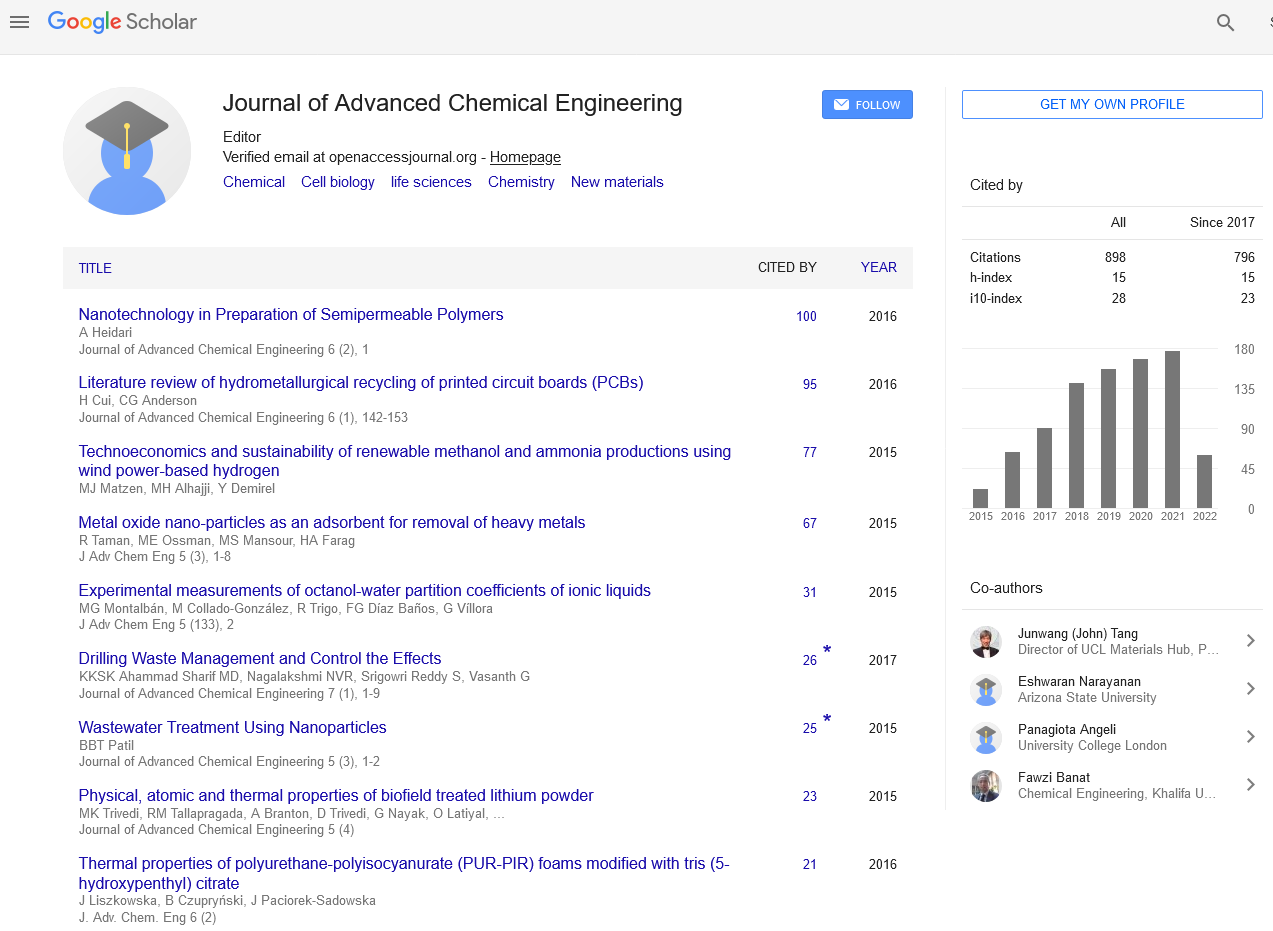Indexed In
- Open J Gate
- Genamics JournalSeek
- Smithers Rapra
- RefSeek
- Directory of Research Journal Indexing (DRJI)
- Hamdard University
- EBSCO A-Z
- OCLC- WorldCat
- Scholarsteer
- Publons
- Geneva Foundation for Medical Education and Research
- Google Scholar
Useful Links
Share This Page
Journal Flyer

Open Access Journals
- Agri and Aquaculture
- Biochemistry
- Bioinformatics & Systems Biology
- Business & Management
- Chemistry
- Clinical Sciences
- Engineering
- Food & Nutrition
- General Science
- Genetics & Molecular Biology
- Immunology & Microbiology
- Medical Sciences
- Neuroscience & Psychology
- Nursing & Health Care
- Pharmaceutical Sciences
Study on curing condition of furan resin for matrix of green composites
2nd World Congress on Biopolymers
August 04-05, 2016 Manchester, UK
Masatoshi Kubouchi, Yoshihiko Arao, Hiroha Tanaka and Jun Nakai
Tokyo Institute of Technology, Japan
Scientific Tracks Abstracts: J Adv Chem Eng
Abstract:
Green composites have recently attracted attention due to its derivation from renewable plant resources. The dwindling of the fossil resources has increased an interest in developing renewable materials such as PLA or other biodegradable ones, however in general these materials show low mechanical properties. From this point of view, natural fiber reinforced plastics (NFRPs) with green polymer matrix are recognized as an alternative for synthetic materials. Furan resin made from corn cob or other vegetable sources is one of the renewable biobased thermosets which shows no biodegradability but has a higher resistance to chemical and heat than the other plant-derived thermoplastics. Introducing fran resin as a matrix with long-life durability and high mechanical performance can be expected. However, because this resin is very brittle and curing mechanism has not been cleared, it is difficult to cure as a composite matrix resin. Since, in previous research it was suggested that this resin needed oxygen in curing process. Hydrogen peroxide was added to improve curing behavior, but the desirable mechanical performance was not accomplished. In additon, through curing reaction and interfacial chemical bonding analysis, an approach to increase the strength and toughness of furan resin was tried. From revision of temperature and time on curing process, average flexural strength was improved to 280 MPa and average elastic modulus was improved to 25 GPa. Furthermore, adding salicylaldehyde as a cupling agent allowed 310 MPa of flexural strength and 27.5 GPa of elastic modulus.
Biography :
Masatoshi Kubouchi has completed his Dr. of Eng. from Tokyo Institute of Technology. He is the Vice Dean of School of Materials and Chemical Technology, Tokyo Institute of Technology. He has published 30 academic books and more than 140 papers in reputed journals and has been succeeded in academic societies, like the President of the Material Sicence Society of Japan, and the Chair of the division of Chemical Plant Material Engineering, the Society of Chemical Engineering, Japan.


